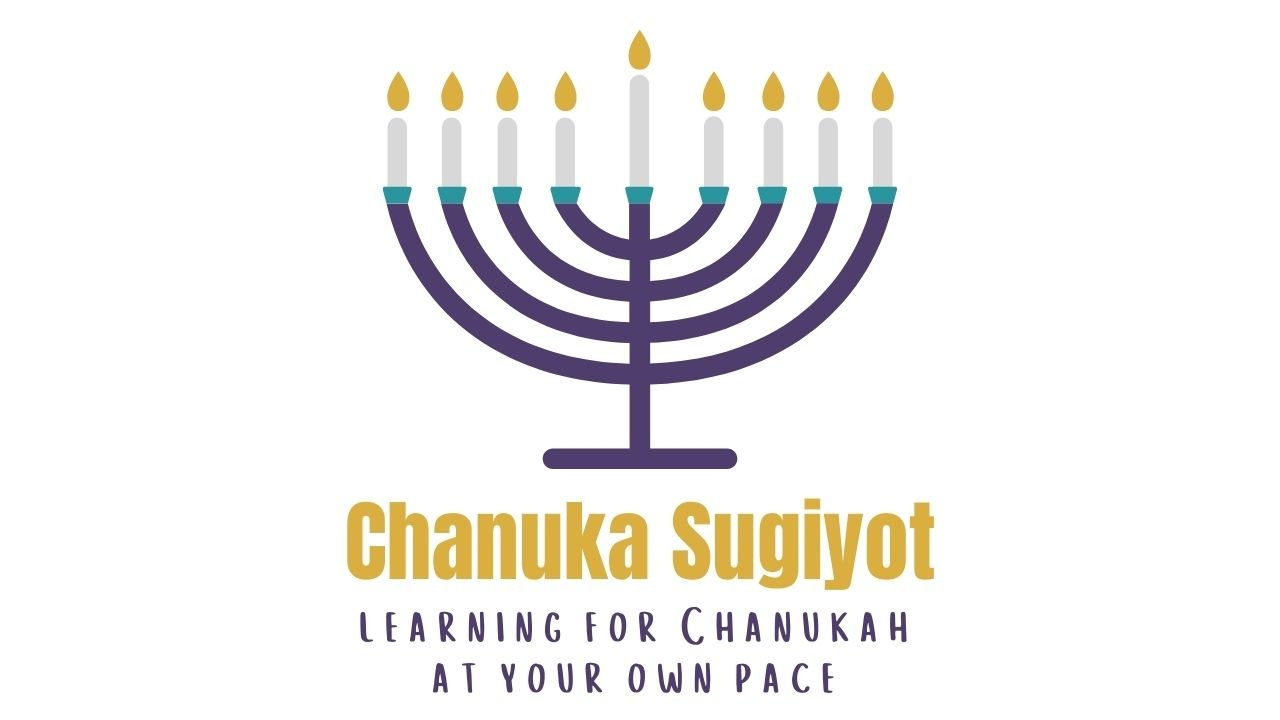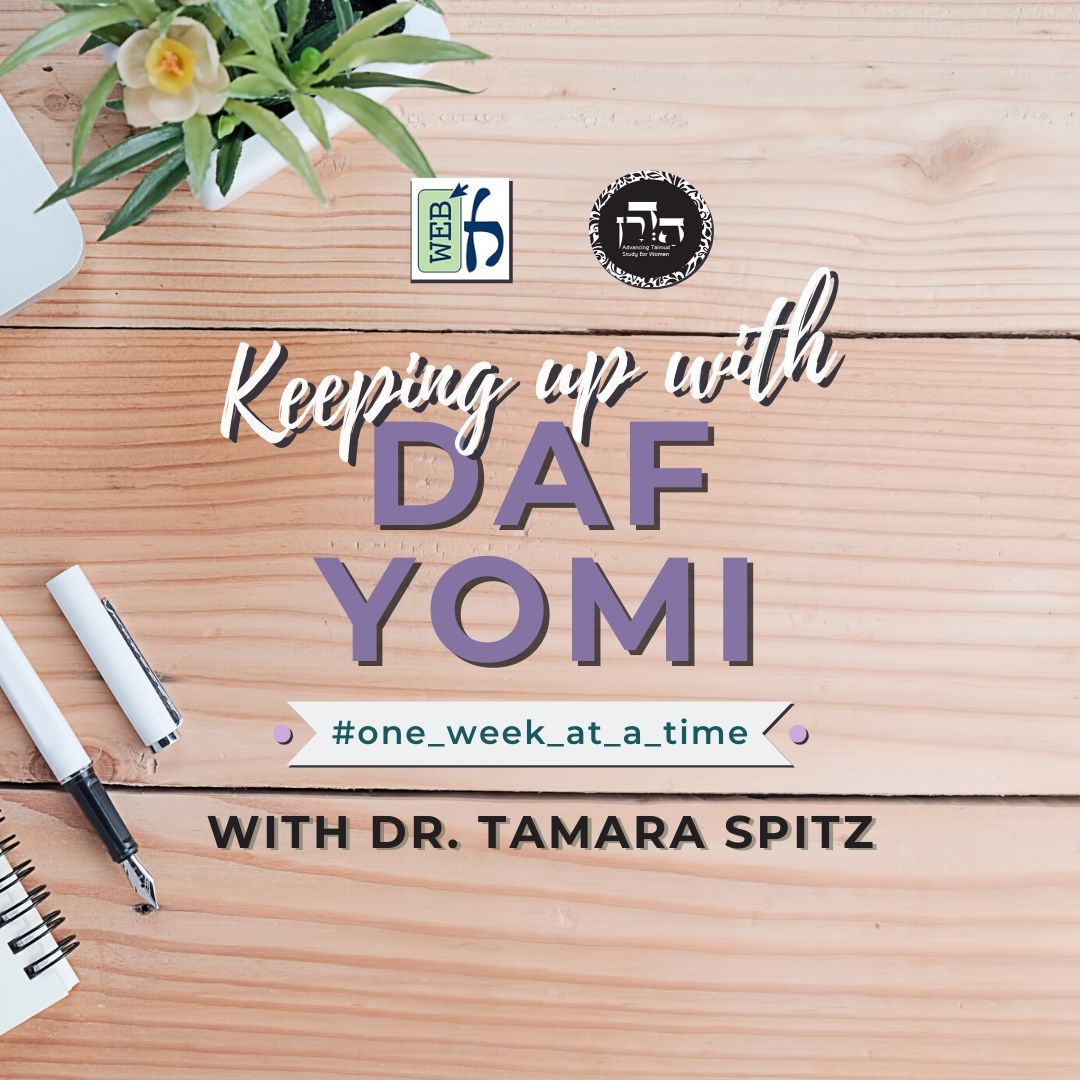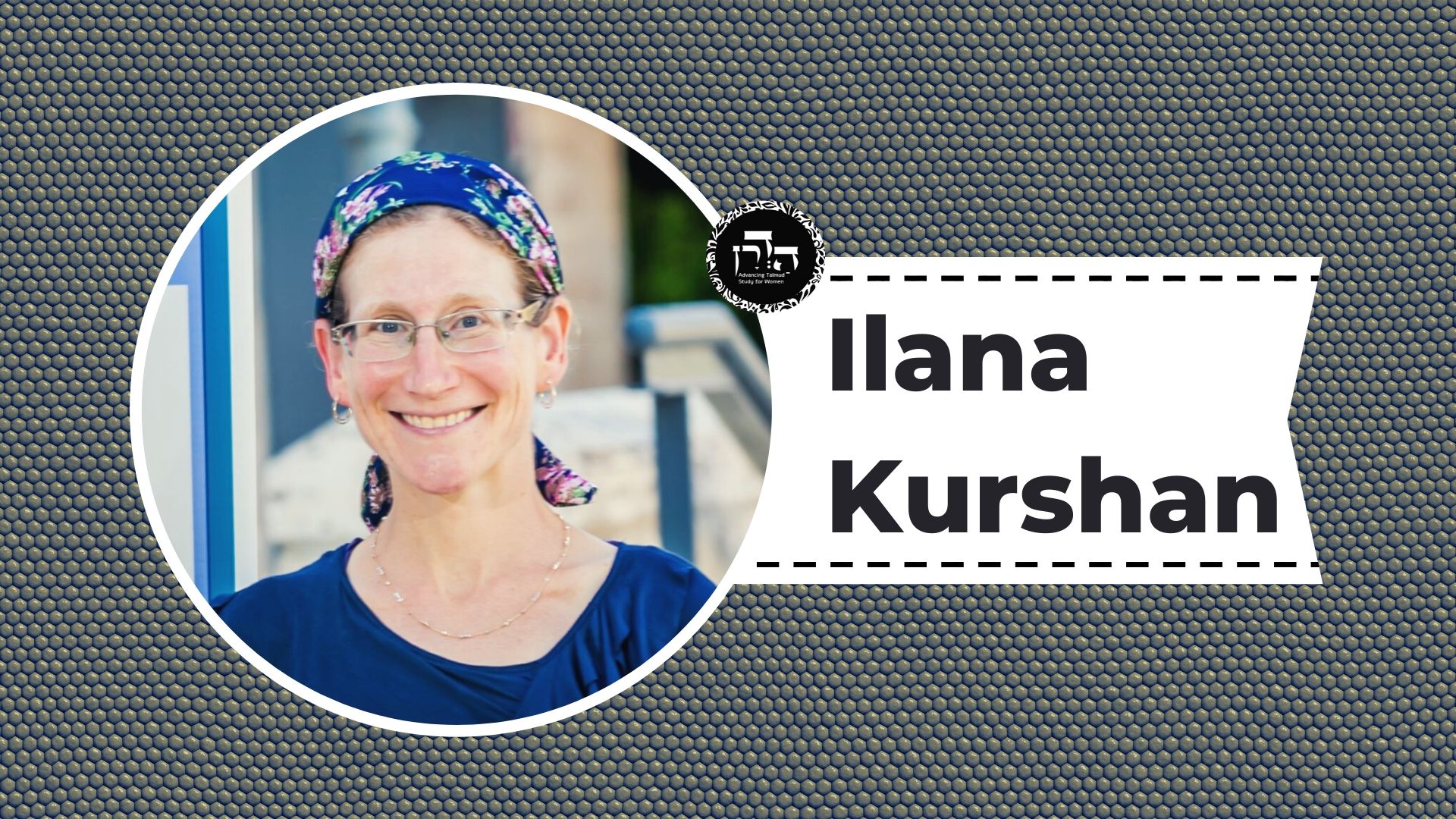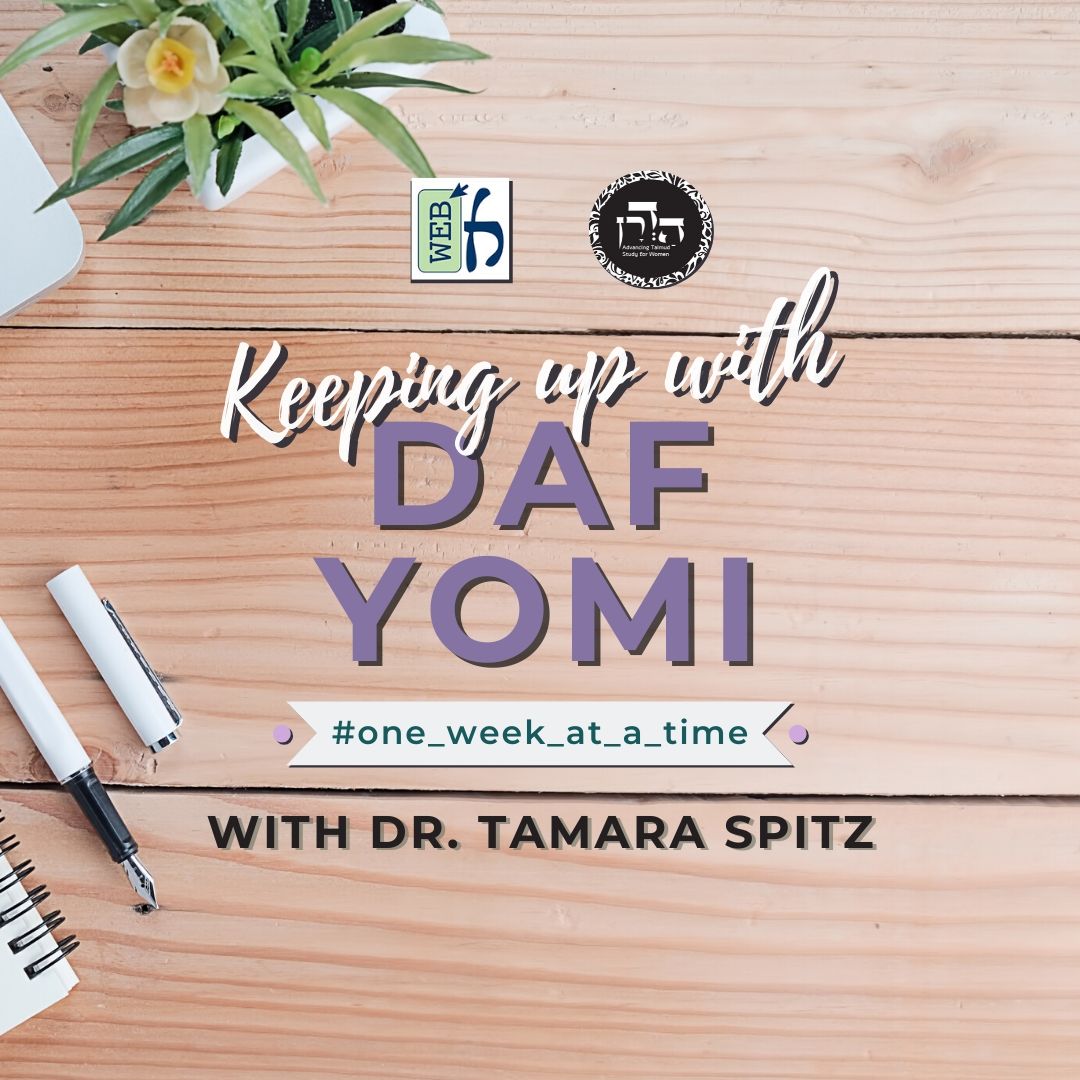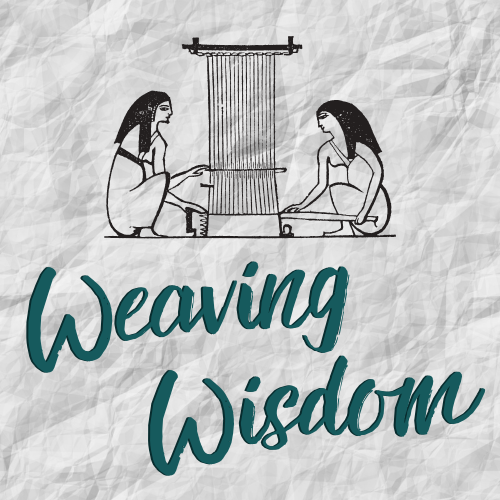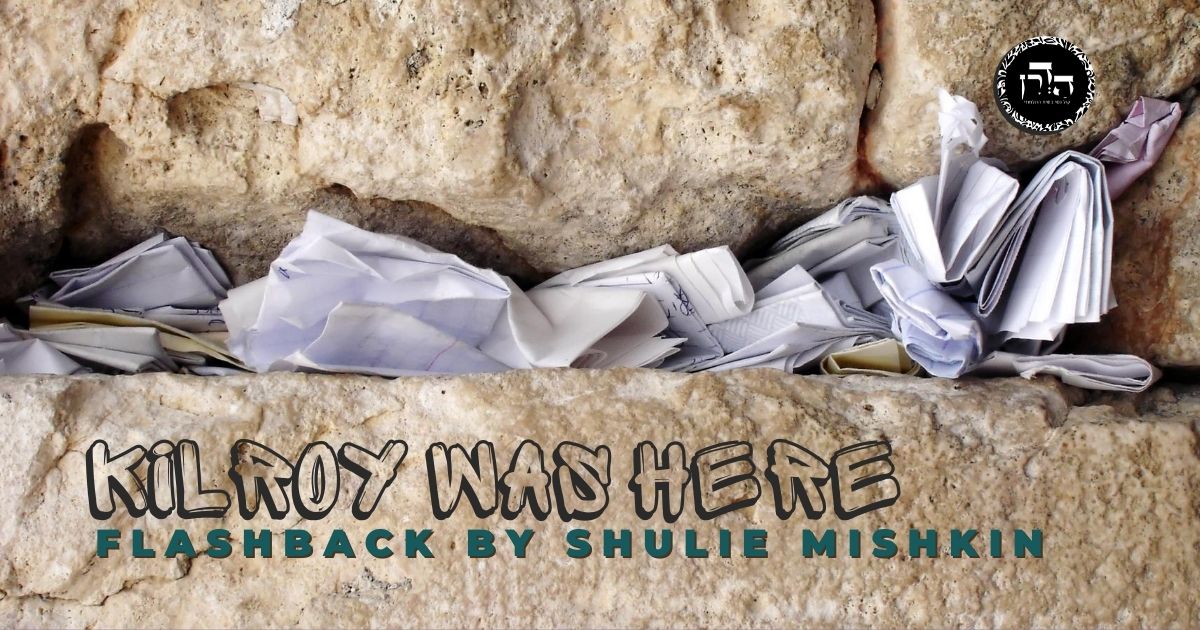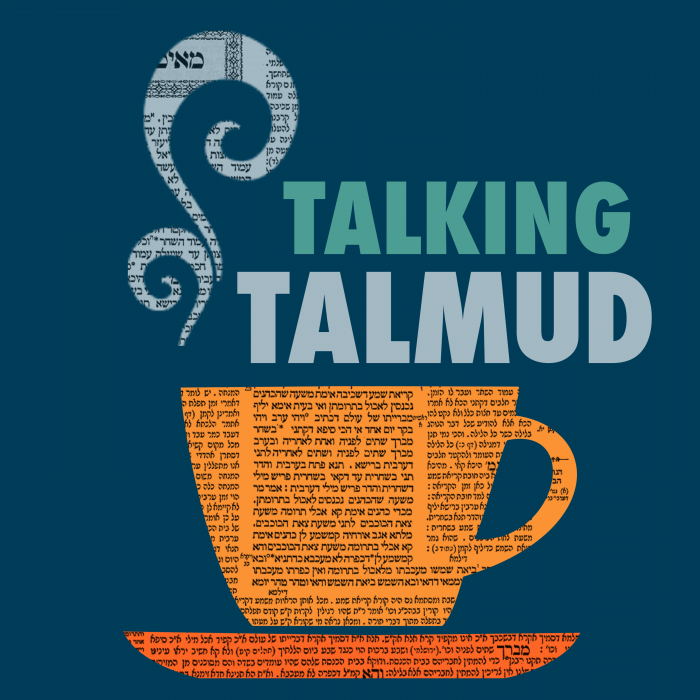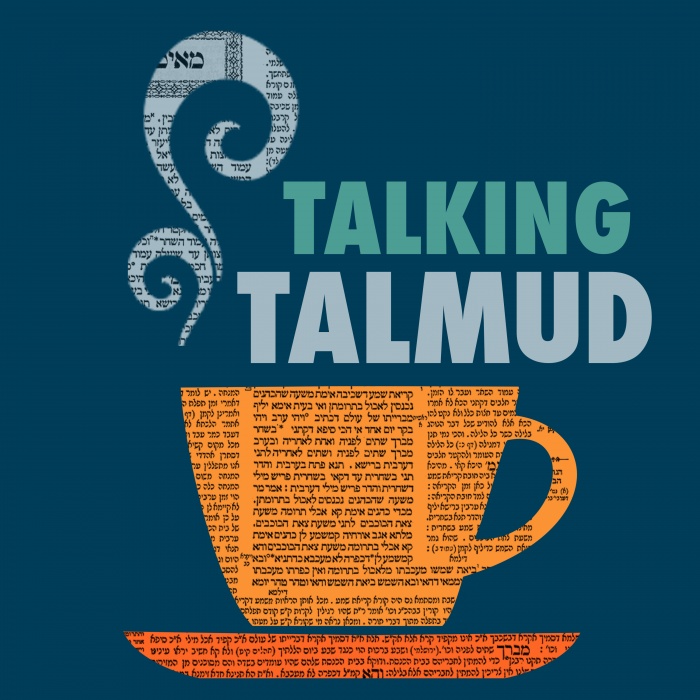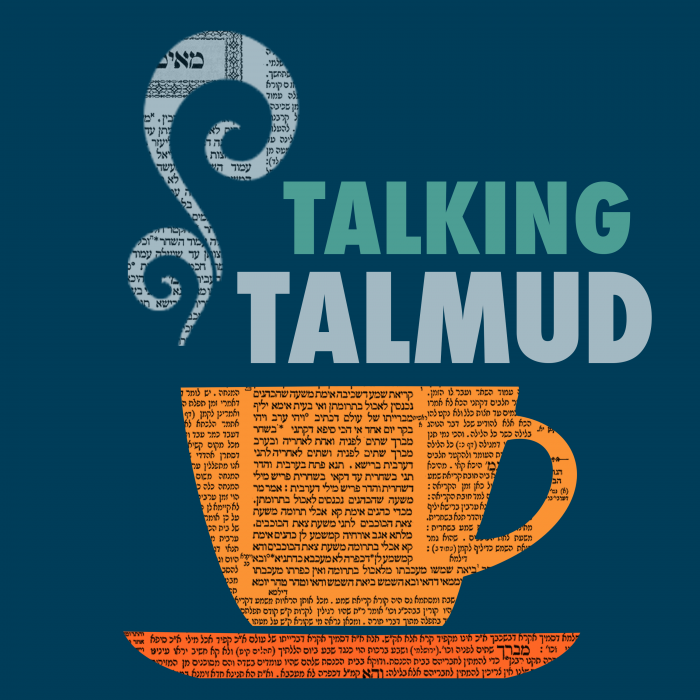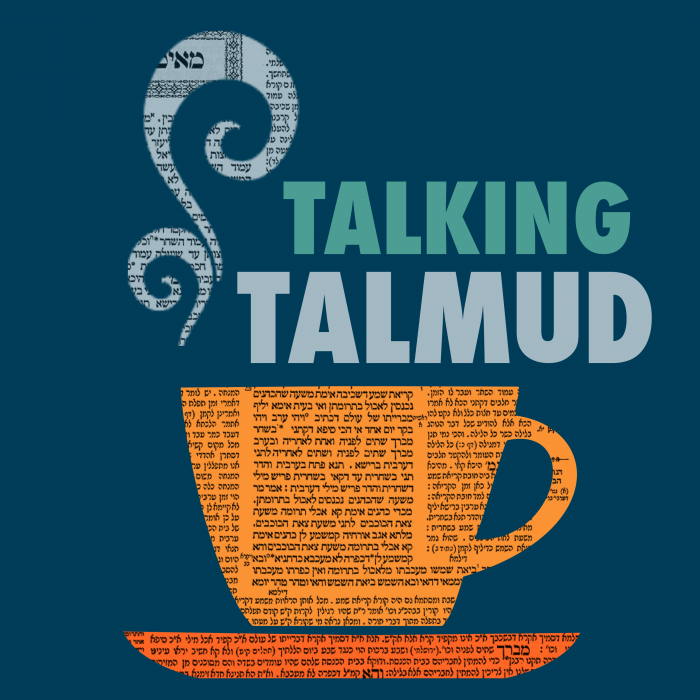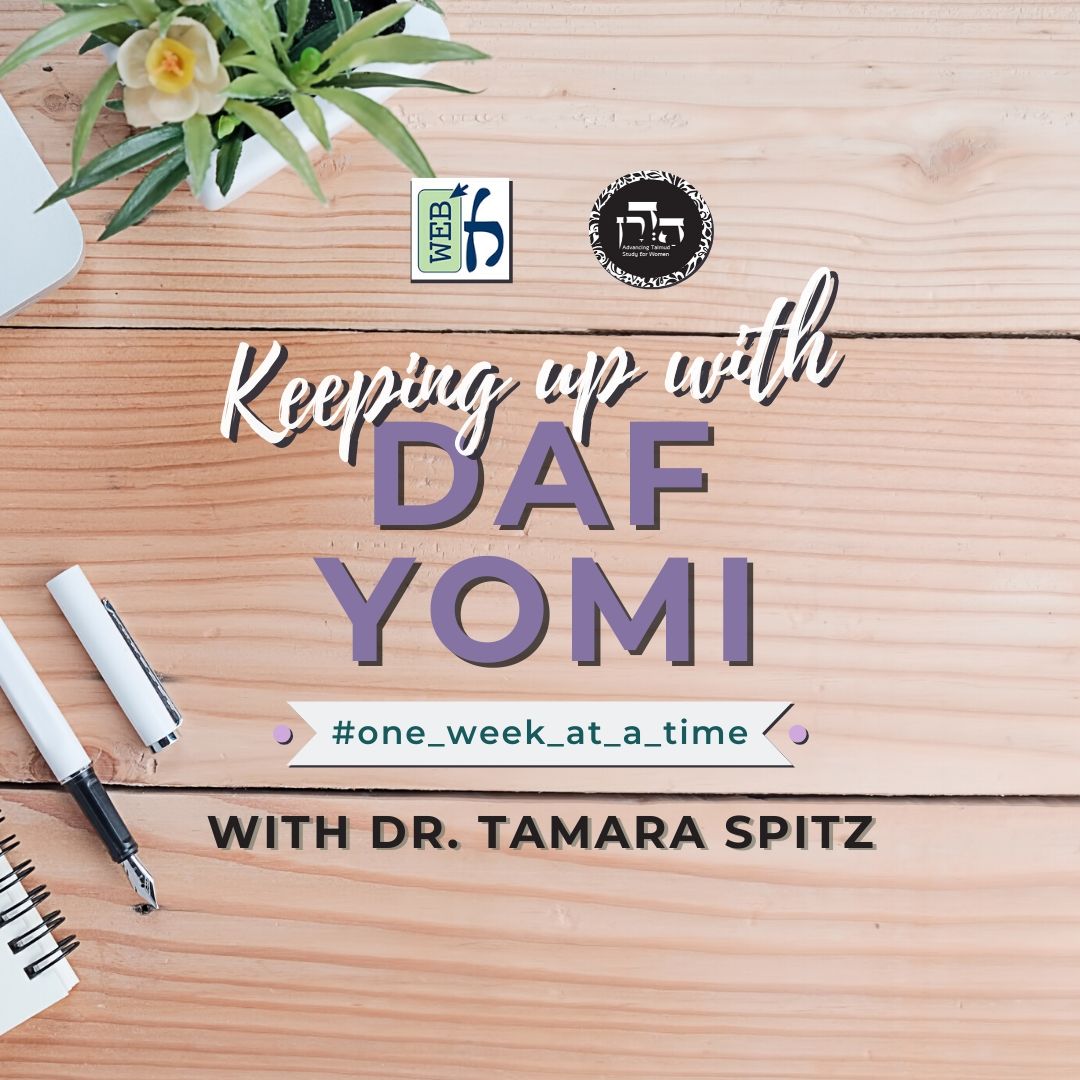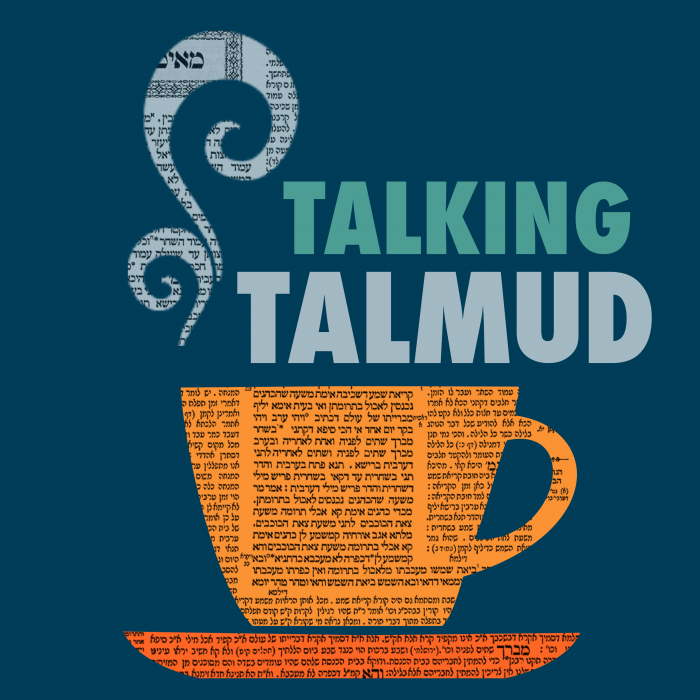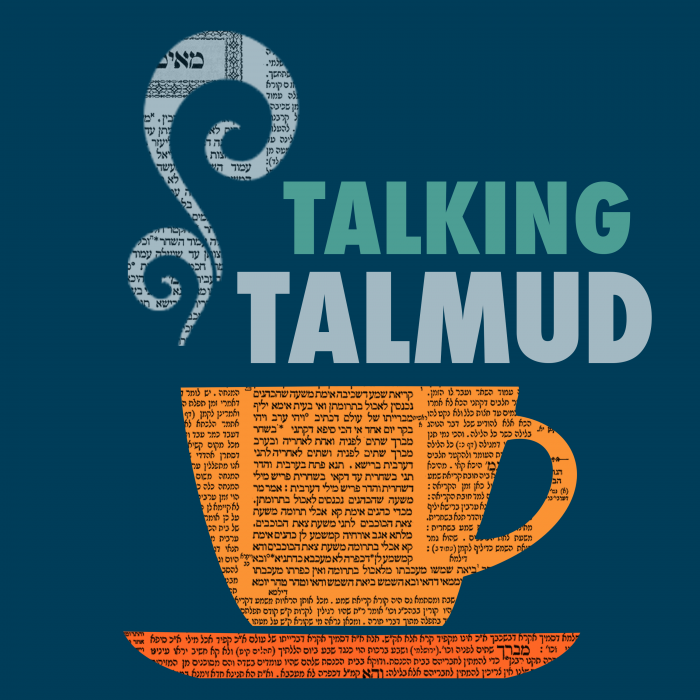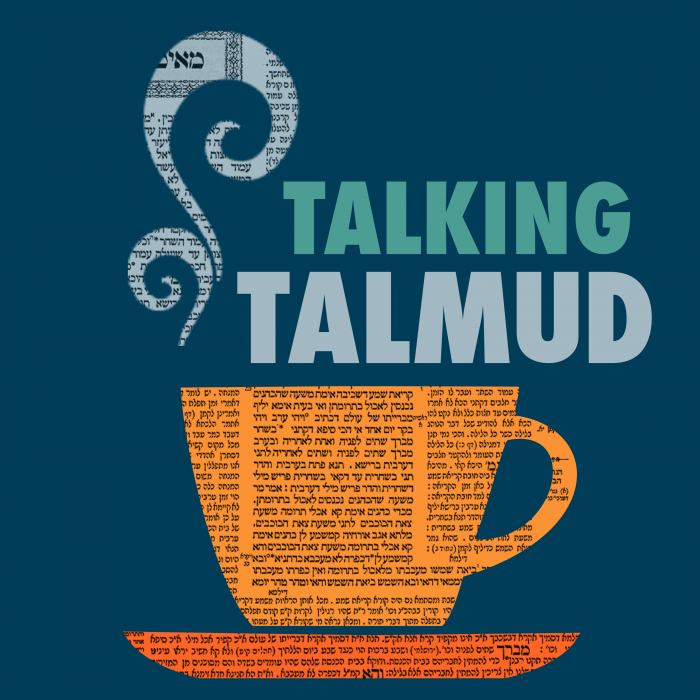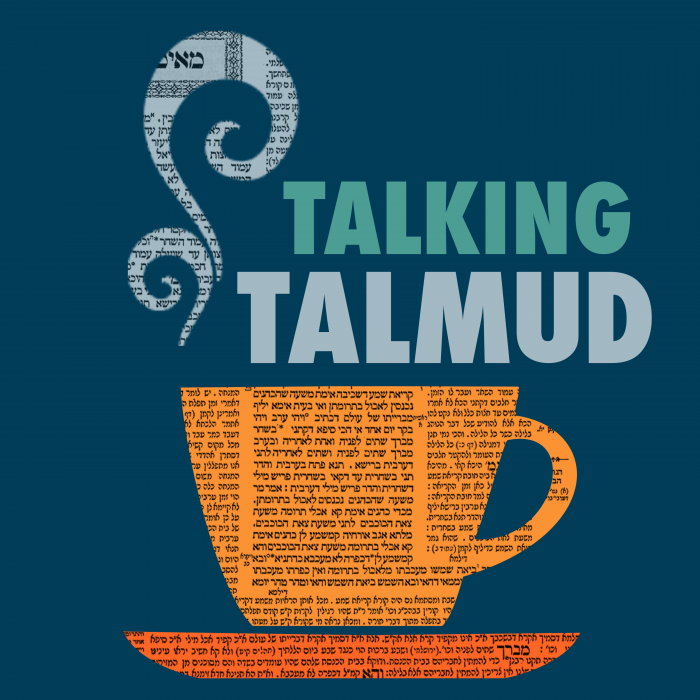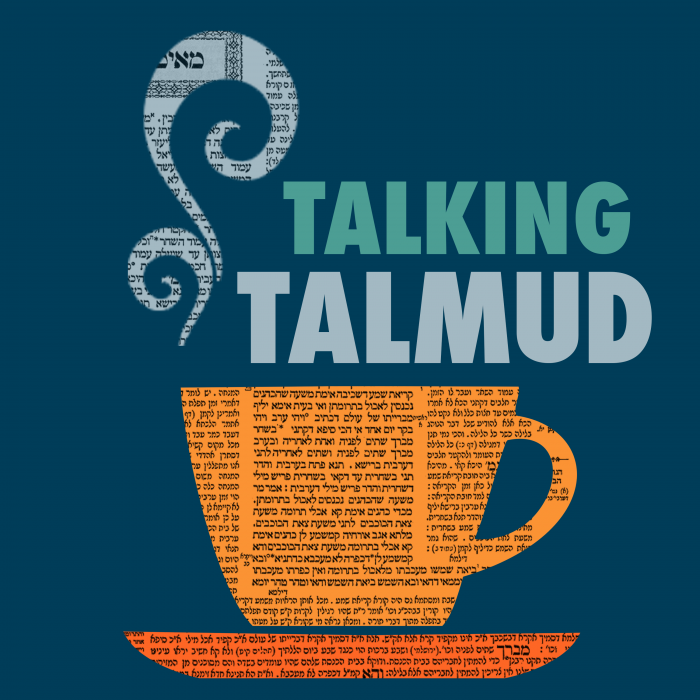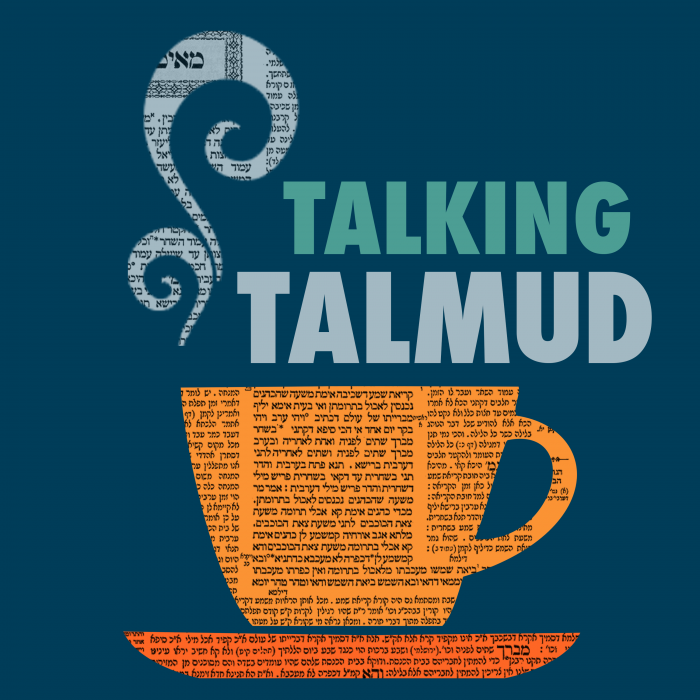What is Abba Shaul trying to add by saying, “If one can say it, then one can wait on the border when Shabbat is ending”? One can wait on the border to do a mitzva like for a bride or a dead person. One can also speak on Shabbat about buying or preparing things for these purposes. If a non-Jew does work on Shabbat, can a Jew benefit from this – on what does it depend? If the non-Jew did it for a non-Jew? Or what if it is unclear who it was done for? In the cases where the Jew can benefit, does he need to wait after Shabbat the amount of time it would take to do it after Shabbat? In cases where he cannot benefit, is it forbidden for him to benefit from it forever? One can do certain things with a person who died on Shabbat -what is allowed and what is not? One cannot close the eyes of a person about to die, even on a weekday as that hastens death. The gemara compares the fact that we desecrate Shabbat for a newborn baby but not for a dead person, even as great as King David. Poverty is cyclical – if you are not poor, likely one of your descendants will be. The gemara stresses the importance of helping and being sympathetic to others as you may need that kind of help in the future. The gemara describes old age and death and talks about how crying causes blindness in those over the age of forty. There are different types of tears – some that are good and some that are bad.
This month’s learning is dedicated to the refuah shleima of our dear friend, Phyllis Hecht, גיטל פעשא בת מאשה רחל by all her many friends who love and admire her. Phyllis’ emuna, strength, and positivity are an inspiration.
Want to dedicate learning? Get started here:


Today’s daily daf tools:
This month’s learning is dedicated to the refuah shleima of our dear friend, Phyllis Hecht, גיטל פעשא בת מאשה רחל by all her many friends who love and admire her. Phyllis’ emuna, strength, and positivity are an inspiration.
Today’s daily daf tools:
Delve Deeper
Broaden your understanding of the topics on this daf with classes and podcasts from top women Talmud scholars.
New to Talmud?
Check out our resources designed to help you navigate a page of Talmud – and study at the pace, level and style that fits you.
The Hadran Women’s Tapestry
Meet the diverse women learning Gemara at Hadran and hear their stories.
Shabbat 151
הַאי ״כׇּל שֶׁאֲנִי זַכַּאי בַּאֲמִירָתוֹ רַשַּׁאי אֲנִי בַּחֲשִׁיכָתו״? ״כׇּל שֶׁאֵינִי זַכַּאי בַּאֲמִירָתוֹ אֵינִי רַשַּׁאי בַּחֲשִׁיכָתוֹ״ מִיבְּעֵי לֵיהּ! אֶלָּא אַסֵּיפָא קָאֵי: ״אֲבָל מַחְשִׁיךְ הוּא לִשְׁמוֹר וּמֵבִיא פֵּירוֹת בְּיָדוֹ״ — הַאי ״כׇּל שֶׁאֲנִי זַכַּאי בַּחֲשִׁיכָתוֹ רַשַּׁאי אֲנִי בַּאֲמִירָתוֹ״ מִיבְּעֵי לֵיהּ!
this phrase: Anything that I am permitted to discuss on Shabbat I am permitted to wait for nightfall for its sake, is not appropriate. Rather, the mishna should have formulated the principle in the negative: With regard to anything that I am not permitted to discuss on Shabbat, I am not permitted to wait for nightfall for its sake, similar to the phraseology at the beginning of the mishna. Rather, it is referring to the latter clause of the mishna, which taught: But he may wait for nightfall in order to guard his produce, and he may bring produce in his hand. But even if this is correct, the phraseology does not fit. It should have said the opposite: Anything for which I am permitted to wait for nightfall I am permitted to discuss.
לְעוֹלָם אַסֵּיפָא קָאֵי, וְאַבָּא שָׁאוּל אַהָא קָאֵי דְּאָמַר רַב יְהוּדָה אָמַר שְׁמוּאֵל: מוּתָּר לָאָדָם לוֹמַר לַחֲבֵירוֹ ״שְׁמוֹר לִי פֵּירוֹת שֶׁבִּתְחוּמְךָ, וַאֲנִי אֶשְׁמוֹר לְךָ פֵּירוֹת שֶׁבִּתְחוּמִי״. וְקָאָמַר אַבָּא שָׁאוּל לְתַנָּא קַמָּא: מִי לָא מוֹדֵית דְּמוּתָּר אָדָם לוֹמַר לַחֲבֵירוֹ: ״שְׁמוֹר לִי פֵּירוֹת שֶׁבִּתְחוּמְךָ וַאֲנִי אֶשְׁמוֹר לְךָ פֵּירוֹת שֶׁבִּתְחוּמִי״.
The Gemara explains: Actually, it is referring to the latter clause of the mishna, and Abba Shaul relates to this statement that Rav Yehuda said that Shmuel said: It is permitted for a person to say to another on Shabbat: Guard my produce that is in your boundary for me, and I will guard your produce in my boundary for you. And this is what Abba Shaul said to the first tanna: Do you not agree that it is permitted for a person to say to another: Guard my produce that is in your boundary for me, and I will guard your produce that is in my boundary for you? It is in such a case that Abba Shaul permitted waiting for nightfall at the edge of the Shabbat boundary in order to guard produce.
וְאֵימָא: ״כׇּל שֶׁאֲנִי זַכַּאי בַּאֲמִירָתוֹ — רַשַּׁאי אֲנִי לְהַחְשִׁיךְ עָלָיו״. ״כְּלָל״ לְאֵתוֹיֵי מַאי? לְאֵתוֹיֵי הָא דְּתָנוּ רַבָּנַן: אֵין מַחְשִׁיכִין עַל הַתְּחוּם לְהָבִיא בְּהֵמָה. הָיְתָה עוֹמֶדֶת חוּץ לַתְּחוּם — קוֹרֵא לָהּ וְהִיא בָּאָה. כְּלָל אָמַר אַבָּא שָׁאוּל: כׇּל שֶׁאֲנִי זַכַּאי בַּאֲמִירָתוֹ — רַשַּׁאי אֲנִי לְהַחְשִׁיךְ עָלָיו.
The Gemara still finds this difficult: And say simply: With regard to anything that I am permitted to discuss, I am permitted to wait for nightfall for its sake. When Abba Shaul stated that his ruling was a general principle, what did that come to include? The Gemara answers: It comes to include that which the Sages taught in the Tosefta: One may not wait for nightfall at the Shabbat boundary in order to bring an animal immediately after Shabbat. If the animal is standing right outside of the boundary, one may call it so that it will come to him. Abba Shaul said a general principle: With regard to anything that I am permitted to discuss on Shabbat, I am permitted to wait for nightfall for its sake. Here, since it is permitted to call to the animal, it is also permitted to wait for nightfall in order to retrieve it.
וּמַחְשִׁיכִין לְפַקֵּחַ עַל עִסְקֵי כַּלָּה וְעַל עִסְקֵי הַמֵּת לְהָבִיא לוֹ אָרוֹן וְתַכְרִיכִין. וְאוֹמְרִים לוֹ: ״לֵךְ לְמָקוֹם פְּלוֹנִי, וְאִם לֹא מָצָאתָ בְּמָקוֹם פְּלוֹנִי — הָבֵא מִמָּקוֹם פְּלוֹנִי״. ״לֹא מָצָאתָ בְּמָנֶה — הָבֵא בְּמָאתַיִם״. רַבִּי יוֹסֵי בְּרַבִּי יְהוּדָה אוֹמֵר: וּבִלְבַד שֶׁלֹּא יַזְכִּיר לוֹ סְכוּם מִקָּח.
The Sages also said: And all agree that one may wait for nightfall to attend to the needs of a bride and the needs of a corpse, such as to bring it a coffin and shrouds. And one may say to him, to one’s messenger, on Shabbat: Go to such and such place to buy them, and if you do not find them in that place, bring them from such and such a place. Similarly, one may instruct one’s messenger: If you do not find them for one hundred dinar, buy them for two hundred. However, Rabbi Yosei, son of Rabbi Yehuda, says: One is permitted to give instructions to a messenger on Shabbat, provided one does not mention to him a specific monetary amount to spend on the transaction.
מַתְנִי׳ מַחְשִׁיכִין עַל הַתְּחוּם לְפַקֵּחַ עַל עִסְקֵי כַּלָּה, וְעַל עִסְקֵי הַמֵּת לְהָבִיא לוֹ אָרוֹן וְתַכְרִיכִים. גּוֹי שֶׁהֵבִיא חֲלִילִין בְּשַׁבָּת — לֹא יִסְפּוֹד בָּהֶן יִשְׂרָאֵל, אֶלָּא אִם כֵּן בָּאוּ מִמָּקוֹם קָרוֹב. עָשׂוּ לוֹ אָרוֹן וְחָפְרוּ לוֹ קֶבֶר — יִקָּבֵר בּוֹ יִשְׂרָאֵל. וְאִם בִּשְׁבִיל יִשְׂרָאֵל — לֹא יִקָּבֵר בּוֹ עוֹלָמִית.
MISHNA: One may wait for nightfall at the Shabbat boundary to attend to the needs of a bride and the needs of a corpse, such as to bring him a coffin and shrouds. If a gentile brought flutes on Shabbat in order to play music during the eulogy and funeral procession, a Jew may not eulogize with them as accompaniment, unless they were brought from a nearby location within the Shabbat boundary and transporting them did not include any violation of halakha. If gentiles made someone a coffin and dug him a grave on Shabbat, and they then changed their minds and decided to give it to someone else, a Jew may be buried in it. However, if it was initially intended for a Jew, a Jew may never be buried in it.
גְּמָ׳ מַאי מִמָּקוֹם קָרוֹב? רַב אָמַר: מִמָּקוֹם קָרוֹב מַמָּשׁ. וּשְׁמוּאֵל אָמַר: חָיְישִׁינַן שֶׁמָּא חוּץ לַחוֹמָה לָנוּ.
GEMARA: The mishna taught that if a gentile brought something from a nearby location on Shabbat, a Jew is permitted to make use of it. The Gemara asks: What exactly is considered to be from a nearby location? Rav said: Something that is from a location that is actually nearby, meaning that we know with certainty where the object was brought from. And Shmuel said: Even if we do not know exactly where it was brought from, we are concerned that it may have stayed overnight just outside the city wall, which is still within the Shabbat boundary, and no prohibition was violated for the sake of the object. Therefore, it would only be prohibited to use such an object if it was known with certainty that it had been brought from outside the Shabbat boundary. Thus, Rav and Shmuel disagree with regard to a situation in which we do not know where the object was brought from on Shabbat.
דַּיְקָא מַתְנִיתִין כְּווֹתֵיהּ דִּשְׁמוּאֵל, דְּקָתָנֵי: ״עָשָׂה לוֹ אָרוֹן וְחָפַר לוֹ קֶבֶר — יִקָּבֵר בּוֹ יִשְׂרָאֵל״. אַלְמָא מִסְּפֵיקָא שְׁרֵי, הָכָא נָמֵי מִסְּפֵיקָא שְׁרֵי.
The language of the mishna is precise according to Shmuel’s opinion, as it teaches: If a gentile made someone a coffin and dug him a grave on Shabbat and then changed his mind and decided to give it to someone else, a Jew may be buried in it. Consequently, we can derive that if it is uncertain whether the coffin and grave were made for a Jew, it is permitted. Here, too, in a case in which a gentile brings flutes, if it is uncertain whether their transportation was in violation of halakha, it is permitted.
וְתַנְיָא כְּווֹתֵיהּ דְּרַב: עִיר שֶׁיִּשְׂרָאֵל וְגוֹיִם דָּרִים בָּהּ, וְהָיְתָה בָּהּ מֶרְחָץ הַמַּרְחֶצֶת בְּשַׁבָּת, אִם רוֹב גּוֹיִם — לָעֶרֶב רוֹחֵץ בָּהּ מִיָּד. אִם רוֹב יִשְׂרָאֵל — יַמְתִּין עַד כְּדֵי שֶׁיֵּחַמּוּ חַמִּין. מֶחֱצָה עַל מֶחֱצָה — אָסוּר וְיַמְתִּין עַד כְּדֵי שֶׁיֵּחַמּוּ חַמִּין. רַבִּי יְהוּדָה אוֹמֵר: בְּאַמְבָּטִי קְטַנָּה, אִם יֵשׁ בָּהּ רְשׁוּת רוֹחֵץ בָּהּ מִיָּד.
And a baraita was taught in accordance with the opinion of Rav: In the case of a city in which both Jews and gentiles live and in which there is a bathhouse that functions on Shabbat, if there is a majority of gentiles in the city, the halakha is that in the evening, after Shabbat, a Jew may bathe in it immediately. If there is a majority of Jews in the city, a Jew must wait until the amount of time necessary to heat up water after Shabbat has passed, so that one will not benefit from the fact that the water was heated on Shabbat. If the population of the city is half Jewish and half gentile, it is prohibited to bathe there immediately after Shabbat, and one must wait until the amount of time necessary to heat up water after Shabbat has passed. Rabbi Yehuda says: In the case of a small bath, if there is a ruling power in the city, a Jew may bathe in it immediately after Shabbat.
מַאי ״רְשׁוּת״? אָמַר רַב יְהוּדָה אָמַר רַב יִצְחָק בְּרֵיהּ דְּרַב יְהוּדָה: אִם יֵשׁ בָּהּ אָדָם חָשׁוּב שֶׁיֵּשׁ לוֹ עֲשָׂרָה עֲבָדִים שֶׁמְּחַמְּמִין לוֹ עֲשָׂרָה קוּמְקוּמִין בְּבַת אַחַת בְּאַמְבָּטִי קְטַנָּה — מוּתָּר לִרְחוֹץ בָּהּ מִיָּד.
The Gemara asks: What is the meaning the phrase: A ruling power? Rav Yehuda said that Rav Yitzḥak, son of Rav Yehuda, said: It means that if there is an important person in the city who has ten slaves who heat ten water jugs [kumkumin] for him at once in a small bath, it is permitted for a Jew to bathe in it immediately after Shabbat. This is because this bath may have been heated immediately after Shabbat for the use of this important person, rather than on Shabbat itself.
עָשׂוּ לוֹ אָרוֹן וְחָפְרוּ לוֹ קֶבֶר וְכוּ׳. אַמַּאי? הָכָא נָמֵי יַמְתִּין בִּכְדֵי שֶׁיֵּעָשׂוּ! אָמַר עוּלָּא: בְּעוֹמֵד בְּאַסְרַטְיָא. תִּינַח קֶבֶר, אָרוֹן מַאי אִיכָּא לְמֵימַר? אָמַר רַבִּי אֲבָהוּ: בְּמוּטָל עַל קִבְרוֹ.
The mishna taught that if gentiles made someone a coffin and dug him a grave and then changed their minds and decided to make it available to someone else, it is permitted for a Jew to be buried in it. The Gemara asks: Why? Here, too, one should at the very least have to wait after Shabbat the amount of time necessary for them to do the work after Shabbat. The Gemara answers: Ulla said: The mishna is addressing a case in which the grave is located in a public street. This indicates that it was intended for a gentile because Jews are not usually buried there. The Gemara asks further: Granted, in the case of a grave, the halakha is understandable. However, in the case of a coffin, what is there to say? Why isn’t a Jew required to wait after Shabbat for the amount of time it would take to make the coffin? Rabbi Abbahu said: The mishna addresses a case in which the coffin was already placed over the grave of a gentile, which proves that it was intended for him.
מַתְנִי׳ עוֹשִׂין כׇּל צׇרְכֵי הַמֵּת: סָכִין וּמְדִיחִין אוֹתוֹ, וּבִלְבַד שֶׁלֹּא יָזִיז בּוֹ אֵבֶר. שׁוֹמְטִין אֶת הַכַּר מִתַּחְתָּיו, וּמְטִילִין אוֹתוֹ עַל הַחוֹל בִּשְׁבִיל
MISHNA: One may perform all of the needs of the dead on Shabbat. One may smear oil on the body and rinse it with water, and all of this is permitted provided that one does not move any of its limbs, which would constitute a violation of the laws of set-aside objects. When necessary, one may also remove a pillow from beneath it and thereby place it on cold sand in order
שֶׁיַּמְתִּין. קוֹשְׁרִין אֶת הַלֶּחִי, לֹא שֶׁיַּעֲלֶה, אֶלָּא שֶׁלֹּא יוֹסִיף. וְכֵן קוֹרָה שֶׁנִּשְׁבְּרָה — סוֹמְכִין אוֹתָהּ בְּסַפְסָל אוֹ בַּאֲרוּכּוֹת הַמִּטָּה, לֹא שֶׁתַּעֲלֶה, אֶלָּא שֶׁלֹּא תּוֹסִיף.
to delay its decomposition. Similarly, one may tie the jaw of a corpse that is in the process of opening. One may not move it directly so that it will rise back to its original position, but so that it will not continue to open. And similarly, if one has a roof beam that has broken on Shabbat, one may support it with a bench or with long poles from a bed. One may not move it so that the beam will rise back to its original place, but so that it will not continue to fall.
גְּמָ׳ וְהָאָמַר רַב יְהוּדָה אָמַר שְׁמוּאֵל: מַעֲשֶׂה בְּתַלְמִידוֹ שֶׁל רַבִּי מֵאִיר שֶׁנִּכְנַס אַחֲרָיו לְבֵית הַמֶּרְחָץ, בִּיקֵּשׁ לְהָדִיחַ קַרְקַע, אָמַר לוֹ: אֵין מְדִיחִין. לָסוּךְ קַרְקַע, אָמַר לוֹ: אֵין סָכִין. קַרְקַע בְּקַרְקַע — מִחַלְּפָא, מֵת בְּקַרְקַע — לָא מִיחַלַּף.
GEMARA: The Gemara questions the mishna’s lenient ruling with regard to smearing oil on a corpse: But didn’t Rav Yehuda say that Shmuel said: There was an incident with a student of Rabbi Meir who followed him into the bathhouse on Shabbat. The student wanted to rinse the ground. Rabbi Meir said to him: One may not rinse on Shabbat. The student wanted to smear the ground with oil. Rabbi Meir said to him: One may not smear on Shabbat. This indicates that it is prohibited to rinse or smear anything that may not be moved on Shabbat. The Gemara responds: The ground in one place can be confused with the ground in another place, and the Sages therefore prohibited these activities even on a tiled floor, such as that of a bathhouse, due to a concern that one may come to do so on a dirt floor and smooth it out. However, a corpse cannot be confused with the ground, and it is therefore permitted to rinse a corpse and smear it with oil.
״כֹּל״ לְאֵתוֹיֵי מַאי? לְאֵתוֹיֵי הָא דְּתָנוּ רַבָּנַן: מְבִיאִין כְּלִי מֵיקַר וּכְלֵי מַתָּכוֹת, וּמַנִּיחִין עַל כְּרֵיסוֹ כְּדֵי שֶׁלֹּא תָּפוּחַ. וּפוֹקְקִין אֶת נְקָבָיו כְּדֵי שֶׁלֹּא תִּיכָּנֵס בָּהֶן הָרוּחַ.
We learned in the mishna that one may attend to all the needs of the dead on Shabbat. The Gemara asks: What does the word all include in the mishna’s ruling that one may have thought is not included? The Gemara answers: It is meant to include that which the Sages taught: One may bring cold vessels and metal vessels and place them on the corpse’s stomach so that it does not swell. And one may seal up its orifices so that air will not enter them and cause swelling.
וְאַף שְׁלֹמֹה אָמַר בְּחׇכְמָתוֹ: ״עַד שֶׁלֹּא יֵרָתֵק חֶבֶל הַכֶּסֶף״ — זֶה חוּט הַשִּׁדְרָה. ״וְתָרוּץ גּוּלַּת הַזָּהָב״ — זֶה אַמָּה. ״וְתִשָּׁבֶר כַּד עַל הַמַּבּוּעַ״ — זֶה הַכָּרֵס. ״וְנָרוֹץ הַגַּלְגַּל אֶל הַבּוֹר״ — זֶה פֶּרֶשׁ.
And King Solomon also said in his wisdom with regard to old age and death: “Before the silver cord is snapped asunder, and the golden bowl is shattered, and the pitcher is broken at the fountain, and the wheel falls, shattered, into the pit” (Ecclesiastes 12:6), which the Gemara explains as follows: “Before the silver cord is snapped asunder”; this is a reference to the spinal cord. “And the golden bowl [gullat] is shattered”; this is a reference to the member, which is like a spring of water [gulla]. “And the pitcher is broken at the fountain”; this is a reference to the stomach, which looks like a pitcher that swells and ruptures. “And the wheel [galgal] falls, shattered, into the pit”; this is a reference to excrement [gelalim].
וְכֵן הוּא אוֹמֵר: ״וְזֵרִיתִי פֶרֶשׁ עַל פְּנֵיכֶם פֶּרֶשׁ חַגֵּיכֶם״. אָמַר רַב הוּנָא וְאָמְרִי לַהּ אָמַר רַב חַגָּא: אֵלּוּ בְּנֵי אָדָם שֶׁמַּנִּיחִין דִּבְרֵי תוֹרָה, וְעוֹשִׂין כׇּל יְמֵיהֶם כְּחַגִּים. אָמַר רַבִּי לֵוִי אָמַר רַב פַּפֵּי אָמַר רַבִּי יְהוֹשֻׁעַ: לְאַחַר שְׁלֹשָׁה יָמִים כְּרֵיסוֹ נִבְקַעַת וְנוֹפֶלֶת לוֹ עַל פָּנָיו, וְאוֹמֶרֶת לוֹ: ״טוֹל מַה שֶּׁנָּתַתָּ בִּי״.
And similarly, it says in the verse: “And I will spread dung upon your faces, even the dung of your Festival offerings” (Malachi 2:3). Rav Huna said, and some say that it was Rav Ḥagga who said: This verse is referring to those people who neglect the words of the Torah and turn all of their days into Festivals. Rabbi Levi said that Rav Pappi said that Rabbi Yehoshua said: Three days after death, the stomach of the dead bursts and falls onto his face and says to him: Take what you have put inside me.
מַתְנִי׳ אֵין מְעַצְּמִין אֶת הַמֵּת בַּשַּׁבָּת, וְלֹא בַּחוֹל עִם יְצִיאַת נֶפֶשׁ. וְהַמְעַצֵּים עִם יְצִיאַת הַנֶּפֶשׁ — הֲרֵי זֶה שׁוֹפֵךְ דָּמִים.
MISHNA: One may not shut the eyes of the dead on Shabbat because the body is set-aside. And one may not shut the eyes even on a weekday while the soul departs. One must wait until the person has died. And one who shuts the eyes while the soul departs is a murderer because he has hastened the person’s death.
גְּמָ׳ תָּנוּ רַבָּנַן: הַמְעַצְּמוֹ עִם יְצִיאַת הַנֶּפֶשׁ — הֲרֵי זֶה שׁוֹפֵךְ דָּמִים. מָשָׁל לְנֵר שֶׁכָּבָה וְהוֹלֶכֶת, אָדָם מַנִּיחַ אֶצְבָּעוֹ עָלֶיהָ — מִיָּד כָּבְתָה. תַּנְיָא, רַבָּן שִׁמְעוֹן בֶּן גַּמְלִיאֵל אוֹמֵר: הָרוֹצֶה שֶׁיִּתְעַצְּמוּ עֵינָיו שֶׁל מֵת — נוֹפֵחַ לוֹ יַיִן בְּחוֹטְמוֹ, וְנוֹתֵן שֶׁמֶן בֵּין רִיסֵי עֵינָיו, וְאוֹחֵז בִּשְׁנֵי גּוּדְלֵי רַגְלָיו, וְהֵן מִתְעַצְּמִין מֵאֲלֵיהֶן.
GEMARA: The Sages taught: One who shuts a person’s eyes while the soul departs is a murderer. This is analogous to a lamp that is gradually becoming extinguished but could continue to burn a little longer. If a person places his finger on it, it is immediately extinguished. It was taught in a baraita that Rabban Shimon ben Gamliel says: One who wants the eyes of a corpse to close should blow wine up its nose, and place oil between its eyelids, and grab hold of its two big toes, and its eyes will shut by themselves.
תַּנְיָא, רַבָּן שִׁמְעוֹן בֶּן גַּמְלִיאֵל אוֹמֵר: תִּינוֹק בֶּן יוֹמוֹ חַי — מְחַלְּלִין עָלָיו אֶת הַשַּׁבָּת, דָּוִד מֶלֶךְ יִשְׂרָאֵל מֵת — אֵין מְחַלְּלִין עָלָיו אֶת הַשַּׁבָּת. תִּינוֹק בֶּן יוֹמוֹ חַי מְחַלְּלִין עָלָיו אֶת הַשַּׁבָּת, אָמְרָה תּוֹרָה: חַלֵּל עָלָיו שַׁבָּת אַחַת, כְּדֵי שֶׁיִּשְׁמוֹר שַׁבָּתוֹת הַרְבֵּה. דָּוִד מֶלֶךְ יִשְׂרָאֵל מֵת אֵין מְחַלְּלִין עָלָיו, כֵּיוָן שֶׁמֵּת אָדָם בָּטֵל מִן הַמִּצְוֹת. וְהַיְינוּ דְּאָמַר רַבִּי יוֹחָנָן: ״בַּמֵּתִים חׇפְשִׁי״ — כֵּיוָן שֶׁמֵּת אָדָם, נַעֲשָׂה חׇפְשִׁי מִן הַמִּצְוֹת.
Incidental to the Gemara’s discussion of corpses, it cites that which was taught in a baraita: Rabban Shimon ben Gamliel says: For a living day-old baby, one desecrates Shabbat to save his life. Yet for the deceased David, king of Israel, one does not desecrate Shabbat. For a day-old baby we desecrate Shabbat because the Torah says: Desecrate one Shabbat for him so that he can observe many Shabbatot. But for the deceased David, king of Israel, one does not desecrate Shabbat, as once a person dies he is idle from mitzvot. And this is what Rabbi Yoḥanan said with regard to the verse: “Set apart among the dead [bametim ḥofshi], like the slain that lie in the grave, whom You remember no more” (Psalms 88:6). Once a person dies, he becomes free [ḥofshi] from the mitzvot.
תַּנְיָא, רַבִּי שִׁמְעוֹן בֶּן אֶלְעָזָר אוֹמֵר: תִּינוֹק בֶּן יוֹמוֹ חַי — אֵין צָרִיךְ לְשׁוֹמְרוֹ מִן הַחוּלְדָּה וּמִן הָעַכְבָּרִים. אֲבָל עוֹג מֶלֶךְ הַבָּשָׁן מֵת — צָרִיךְ לְשׁוֹמְרוֹ מִן הַחוּלְדָּה וּמִן הָעַכְבָּרִים, שֶׁנֶּאֱמַר: ״וּמוֹרַאֲכֶם וְחִתְּכֶם יִהְיֶה״, כׇּל זְמַן שֶׁאָדָם חַי — אֵימָתוֹ מוּטֶּלֶת עַל הַבְּרִיּוֹת, כֵּיוָן שֶׁמֵּת — בָּטְלָה אֵימָתוֹ.
And it was also taught in a baraita that Rabbi Shimon ben Elazar said: It is not necessary to protect a live day-old baby from a weasel or from mice, for they run away from the baby. But if Og, the king of Bashan, is dead, it is necessary to protect even him from a weasel or from mice, as it is stated: “And the fear of you and the dread of you [ḥittekhem] shall be upon every beast of the earth, and upon every bird of the heavens” (Genesis 9:2). The Gemara explains: As long as a person is alive [ḥai], he is feared by the animals. Once he dies, he is no longer feared.
אָמַר רַב פָּפָּא, נְקִיטִינַן: אַרְיֵה אַבֵּי תְּרֵי — לָא נָפֵיל. הָא קָא חָזֵינַן דְּנָפֵיל? הָהוּא כִּדְרָמֵי בַּר אַבָּא. דְּאָמַר רָמֵי בַּר אַבָּא: אֵין חַיָּה שׁוֹלֶטֶת בָּאָדָם עַד שֶׁנִּדְמָה לוֹ כִּבְהֵמָה, שֶׁנֶּאֱמַר: ״אָדָם בִּיקָר בַּל יָלִין נִמְשַׁל כַּבְּהֵמוֹת נִדְמוּ״. אָמַר רַבִּי חֲנִינָא: אָסוּר לִישַׁן בַּבַּיִת יְחִידִי, וְכׇל הַיָּשֵׁן בַּבַּיִת יְחִידִי — אֹחַזְתּוֹ לִילִית.
Rav Pappa said: We hold that a lion does not pounce upon two people. The Gemara challenges this: But how can that be? We see that it does pounce upon two people. The Gemara answers: That statement of Rav Pappa must be in accordance with that which Rami bar Abba said: An animal does not overpower a person until he appears to it as an animal, as it is stated: “But man does not abide in honor, he is like the beasts that perish” (Psalms 49:13). However, animals do not attack people who are human in their spiritual character. In a similar vein, Rabbi Ḥanina said: It is prohibited to sleep alone in a house, and anyone who sleeps alone in a house will be seized by the evil spirit Lilith.
תַּנְיָא, רַבִּי שִׁמְעוֹן בֶּן אֶלְעָזָר אוֹמֵר: עֲשֵׂה עַד שֶׁאַתָּה מוֹצֵא, וּמָצוּי לְךָ, וְעוֹדְךָ בְּיָדֶךָ. וְאַף שְׁלֹמֹה אָמַר בְּחׇכְמָתוֹ: ״וּזְכוֹר אֶת בּוֹרְאֶיךָ בִּימֵי בְּחוּרוֹתֶיךָ עַד [אֲשֶׁר] (שֶׁ)לֹא יָבֹאוּ יְמֵי הָרָעָה״ — אֵלּוּ יְמֵי הַזִּקְנָה, ״וְהִגִּיעוּ שָׁנִים אֲשֶׁר תֹּאמַר אֵין לִי בָהֶם חֵפֶץ״ — אֵלּוּ יְמֵי הַמָּשִׁיחַ, שֶׁאֵין בָּהֶם לֹא זְכוּת וְלֹא חוֹבָה.
It was also taught in a baraita with regard to the appreciation of life: Rabbi Shimon ben Elazar says: Perform mitzvot while you still find opportunities, and you have the financial means, and you are still under your own control. And King Solomon also said, in his wisdom: “And remember your Creator in the days of your youth, before the evil days come and the years arrive when you will say: I have no desire for them” (Ecclesiastes 12:1). Rabbi Shimon ben Elazar explains: “The evil days”; these are the days of old age. “And the years arrive when you will say: I have no desire for them”; these are the days of Messiah, in which there is neither merit nor liability.
וּפְלִיגָא דִּשְׁמוּאֵל, דְּאָמַר שְׁמוּאֵל: אֵין בֵּין הָעוֹלָם הַזֶּה לִימוֹת הַמָּשִׁיחַ אֶלָּא שִׁיעְבּוּד מַלְכִיּוֹת בִּלְבַד, שֶׁנֶּאֱמַר: כִּי ״לֹא יֶחְדַּל אֶבְיוֹן מִקֶּרֶב הָאָרֶץ״.
The Gemara comments that this explanation disagrees with the view of Shmuel, for Shmuel said: There is no difference between this world and the days of Messiah except for subjugation to foreign kingdoms alone, from which we will be released in the Messianic era, as it is stated: “For the poor will never cease from the land, therefore I command you, saying: You shall surely open your hand to your brother, to your poor and your needy in your land.” (Deuteronomy 15:11). This indicates that the ways of the world, including the existence of wealthy and poor socioeconomic strata, will continue forever.
תַּנְיָא, רַבִּי אֶלְעָזָר הַקַּפָּר אוֹמֵר: לְעוֹלָם יְבַקֵּשׁ אָדָם רַחֲמִים עַל מִדָּה זוֹ, שֶׁאִם הוּא לֹא בָּא — בָּא בְּנוֹ, וְאִם בְּנוֹ לֹא בָּא — בֶּן בְּנוֹ בָּא, שֶׁנֶּאֱמַר: ״כִּי בִּגְלַל הַדָּבָר הַזֶּה״. תָּנָא דְּבֵי רַבִּי יִשְׁמָעֵאל: גַּלְגַּל הוּא שֶׁחוֹזֵר בָּעוֹלָם. אָמַר רַב יוֹסֵף, נְקִיטִינַן: הַאי צוּרְבָּא מֵרַבָּנַן לָא מִיעֲנֵי. וְהָא קָא חָזֵינַן דְּמִיעֲנֵי! אִם אִיתָא דְּמִיעֲנֵי, אַהְדּוֹרֵי אַפִּתְחָא לָא מַהְדַּר.
It was taught in a baraita that Rabbi Elazar HaKappar says: A person should always request divine mercy with regard to this condition of poverty, for if he does not come to a state of poverty, his son will, and if his son does not come to such a state his grandson will, as it is stated: “You shall surely give him and your heart shall not be grieved when you give to him, for due to this thing [biglal hadavar hazeh] the Lord your God will bless you in all your work and in all that you put your hand toward” (Deuteronomy 15:10). With regard to this verse, the tanna from the school of Rabbi Yishmael taught: Due to [biglal] this thing means that it is a wheel [galgal] that turns in the world, upon which people continuously rise and fall. Rav Yosef said: We hold that a Torah scholar will not become poor. The Gemara challenges this statement: But we see that they do become poor. The Gemara answers: Even so, if there is a Torah scholar who becomes poor, he will still never have to go around asking for charity at people’s doors.
אֲמַר לַהּ רַבִּי חִיָּיא לִדְבֵיתְהוּ: כִּי אָתֵי עַנְיָא — אַקְדִּימִי לֵיהּ רִיפְתָּא, כִּי הֵיכִי דְּלַקְדְּמוּ לִבְנַיִךְ. אֲמַרָה לֵיהּ: מֵילָט קָא לָיְיטַתְּ לְהוּ?! אֲמַר לַהּ, קְרָא קָא כְּתִיב: ״כִּי בִּגְלַל הַדָּבָר הַזֶּה״, וְתָנָא דְּבֵי רַבִּי יִשְׁמָעֵאל — גַּלְגַּל הוּא שֶׁחוֹזֵר בָּעוֹלָם. תַּנְיָא, רַבִּי גַּמְלִיאֵל בְּרַבִּי אוֹמֵר: ״וְנָתַן לְךָ רַחֲמִים וְרִחַמְךָ וְהִרְבֶּךָ״, כׇּל הַמְרַחֵם עַל הַבְּרִיּוֹת — מְרַחֲמִין עָלָיו מִן הַשָּׁמַיִם, וְכֹל שֶׁאֵינוֹ מְרַחֵם עַל הַבְּרִיּוֹת — אֵין מְרַחֲמִין עָלָיו מִן הַשָּׁמַיִם.
In a similar vein, the Gemara relates that Rabbi Ḥiyya said to his wife: When a poor person comes to the house, be quick to give him bread so that they will be quick to give bread to your children. She said to him: Are you cursing them, your children? He said to her: It is a verse that is written, as it says: “Due to this thing,” and the school of Rabbi Yishmael taught that it is a wheel that continuously turns in the world. Similarly, it was taught in a baraita that Rabbi Gamliel, son of Rabbi Yehuda HaNasi, says: The verse that states: “And He will show you mercy and have compassion on you and multiply you” (Deuteronomy 13:18) teaches us that anyone who has compassion for God’s creatures will receive compassion from Heaven, and anyone who does not have compassion for God’s creatures will not receive compassion from Heaven.
״עַד אֲשֶׁר לֹא תֶחְשַׁךְ הַשֶּׁמֶשׁ וְהָאוֹר״ — זוֹ פַּדַּחַת וְהַחוֹטֶם, ״וְהַיָּרֵחַ״ — זוֹ נְשָׁמָה, ״וְהַכּוֹכָבִים״ — אֵלּוּ הַלְּסָתוֹת, ״וְשָׁבוּ הֶעָבִים אַחַר הַגָּשֶׁם״ — זוֹ מְאוֹר עֵינָיו שֶׁל אָדָם, שֶׁהוֹלֵךְ אַחַר הַבֶּכִי. אָמַר שְׁמוּאֵל: הַאי דִּמְעֲתָא — עַד אַרְבְּעִין שְׁנִין הָדְרָא, מִכָּאן וְאֵילָךְ לָא הָדְרָא.
The Gemara returns to verses from Ecclesiastes that relate to death and old age. It is written: “Before the sun and the light and the moon and the stars are darkened, and the clouds return after the rain” (Ecclesiastes 12:2). The Sages taught: “The sun and the light”; this is referring to the forehead and the nose which stick out from a person’s face. “And the moon”; this is referring to the soul, which shines within a person. “And the stars”; these are the cheeks. “And the clouds return after the rain”; this is the light of a person’s eyes, which goes and dwindles after one cries as if it were covered by clouds. Shmuel said: With regard to the tear that a person cries, until one reaches the age of forty years, one’s vision returns and is not harmed. From here on, once a person reaches the age of forty, it does not return, and every time a person cries his vision is weakened.
וְאָמַר רַב נַחְמָן: הַאי כּוּחְלָא עַד אַרְבְּעִין שְׁנִין — מַרְוַוח, מִכָּאן וְאֵילָךְ — אֲפִילּוּ מְלֵי כְּאַכְסְנָא דְגַרְדָאֵי — אוֹקוֹמֵי מוֹקֵים, אַרְווֹחֵי לָא מַרְוַוח. מַאי קָא מַשְׁמַע לַן? דְּכַמָּה דְּאַלִּים מִכּוּחְלָא — טְפֵי מְעַלֵּי.
And similarly, Rav Naḥman said: With regard to medicinal eye shadow, until one reaches the age of forty years, it enhances his eyesight. From here and on, even if one fills it as thick as a weaver’s pin [avisana degirda’ei], it will maintain his eyesight but it will not enhance it. The Gemara asks about this: What is he teaching us with the example of a weaver’s pin? The Gemara answers: Generally speaking, the more eye shadow one applies, the more beneficial it is.
רַבִּי חֲנִינָא שְׁכִיבָא לֵיהּ בַּרְתֵּיהּ, לָא הֲוָה קָא בָכֵי עֲלַהּ. אֲמַרָה לֵיהּ דְּבֵיתְהוּ: תַּרְנְגוֹלְתָּא אַפֵּיקְתְּ מִבֵּיתָךְ?! אֲמַר לַהּ: תַּרְתֵּי — תְּכָלָא וְעִיוְרָא. סָבַר לַהּ כִּי הָא דַּאֲמַר רַבִּי יוֹחָנָן מִשּׁוּם רַבִּי יוֹסֵי בֶּן קַצַּרְתָּה: שֵׁשׁ דְּמָעוֹת הֵן — שָׁלֹשׁ יָפוֹת, וְשָׁלֹשׁ רָעוֹת. שֶׁל עָשָׁן וְשֶׁל בְּכִי
The Gemara relates a story: When Rabbi Ḥanina’s daughter died, he did not cry over her. His wife said to him: Have you merely let a chicken out of your house, that you do not show any signs of sorrow? He said to her: If I cry, I will suffer twice, from bereavement and from blindness. The Gemara explains: He held in accordance with the statement that Rabbi Yoḥanan said in the name of Rabbi Yosei ben Ketzarta: There are six types of tears, three of which are good for the eyes and three of which are bad. Tears that come from smoke, and from crying out of sorrow,


